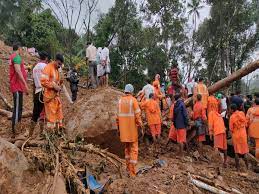
Rescue Efforts Underway
Rescuers, assisted by drones, continue their search for survivors after landslides in southern Ethiopia. The disaster has claimed 229 lives and displaced thousands. Humanitarian agencies rush to provide emergency aid to the affected region.
Immediate Needs and Evacuations
About 14,000 people urgently need evacuation due to ongoing landslide risks, according to a UN source. The landslides struck Kencho Shacha Gozdi, a remote area in South Ethiopia. Residents, using shovels and their bare hands, dig through the mud, searching for victims.
Casualty Report
So far, authorities have confirmed 148 men and 81 women dead. The Gofa Zone Communications Affairs Department reported this on Tuesday. Senait Solomon, head of communications for South Ethiopia, confirmed that rescuers pulled eight survivors from the mud, who are now receiving medical treatment.
Search Operations and Support
The search for survivors continues, aided by drones operated by experts from the Information Network Security Administration (INSA). The Ethiopian Disaster Risk Management Commission (EDRMC) is coordinating the rescue efforts, addressing urgent needs for food, water, medicine, and shelter.
Victims and Displacement
Most victims died while helping others affected by an initial landslide triggered by heavy rains on Sunday. The UN’s humanitarian response agency OCHA reported that over 14,000 people were affected. The area, about 450 kilometers from Addis Ababa, is facing significant challenges.
Children and Pregnant Women at Risk
Among those affected are 5,000 pregnant or lactating women and 1,300 children. Immediate evacuation is critical to prevent further casualties. The UN source emphasized the need for swift action to ensure safety.
Global Reactions and Support
Ethiopian Prime Minister Abiy Ahmed expressed deep sorrow over the loss. The Federal Disaster Prevention Task Force is deployed to mitigate the disaster’s impact. WHO chief Tedros Adhanom Ghebreyesus and African Union Commission chief Moussa Faki Mahamat also sent condolences and support.
US Embassy and International Aid
The US Embassy in Ethiopia offered condolences and stated that USAID is coordinating with humanitarian partners. The international community is rallying to support the relief efforts.
Historical Context and Future Solutions
The landslide in South Ethiopia is the deadliest such incident in the country. In May, a similar but smaller landslide in the same area killed over 50 people. Seasonal rains have historically caused flooding and displacement in this region.
Lessons from Past Disasters
Previous disasters include the 2017 garbage dump collapse in Addis Ababa, which killed at least 113 people. Africa has experienced other severe landslides, such as the 2017 Freetown landslide in Sierra Leone, which killed 1,141 people, and the 2010 Mount Elgon mudslides in Uganda, which claimed over 350 lives.
Call for Long-Term Solutions
Officials emphasize the need for a thorough investigation into the landslide’s cause. They advocate for long-term solutions, including relocating populations from high-risk areas. An integrated study-based approach could help mitigate future risks.
The search and rescue operations continue in southern Ethiopia after devastating landslides. The global community, including the UN, WHO, and various governments, provides support and aid. As the situation unfolds, efforts focus on rescuing survivors, supporting displaced individuals, and preventing future tragedies. For ongoing updates and more information, visit the UN OCHA and Ethiopian Disaster Risk Management Commission websites.





